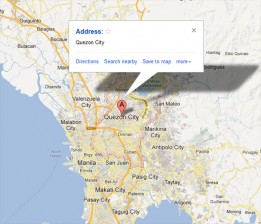
Quezon City mayor Herbert Bautista has approved the “Quezon City Human Milk Bank Ordinance,” under the policy that breastfeeding is the normal way of providing young infants with the nutrients they need for healthy growth and development. The measure was enacted on September 17 last year after it was introduced by second district councilor Julienne Alyson Rae Medalla.
The human milk bank section will collect, screen, process, store and distribute donated human milk. The section will operate like a blood bank where infants who do not have access to their own mothers’ milk would be provided an alternative feeding option.
The milk banks, the ordinance states, shall be operated on a non-profit basis but a minimal processing fee may be charged for the screening process and administrative costs.
“However, inability to pay for the fee shall not be a reason for nonavailment of the milk for patients in need,” according to the measure.
The section would be manned by trained and dedicated health personnel in human milk banking and lactation management such as: a consultant physician; a lactation specialist or counselor who could be a nurse; a midwife; and a medical technologist.
The lactation specialist, assisted by the midwife, will be tasked to interview and conduct physical examination on milk donors. The specialist will also be responsible for the release of donated breastmilk to recipients.
Medical technologists are tasked to conduct laboratory tests after the initial screening interview and physical interview of donors and routine bacteriologic evaluation of all raw human milk and all batches of pasteurized donor milk.
The donated breastmilk will be dispensed by prescription or by hospital purchase order to infants at the intensive care unit, pediatric wards, pay wards and emergency rooms on the conditions of: prematurity, malabsorption, feeding intolerance, immunologic deficiencies, congenital abnormalities, or post-operative surgical conditions.
“No person, including hospital employees, other than the health personnel stationed in the human milk bank shall be allowed to allocate the breastmilk collected unless otherwise sanctioned by this ordinance,” the measure states.
It further says, “In the distribution of donor milk, priority will be given to service or private patients who are pre-term, post-surgical, or critically-ill newborns and for infants in disaster and calamity-stricken areas.”
The budget for the establishment of the human milk banks will be taken from the 2013 city budget and an annual budget shall be allocated for its continuous operation in the succeeding years.